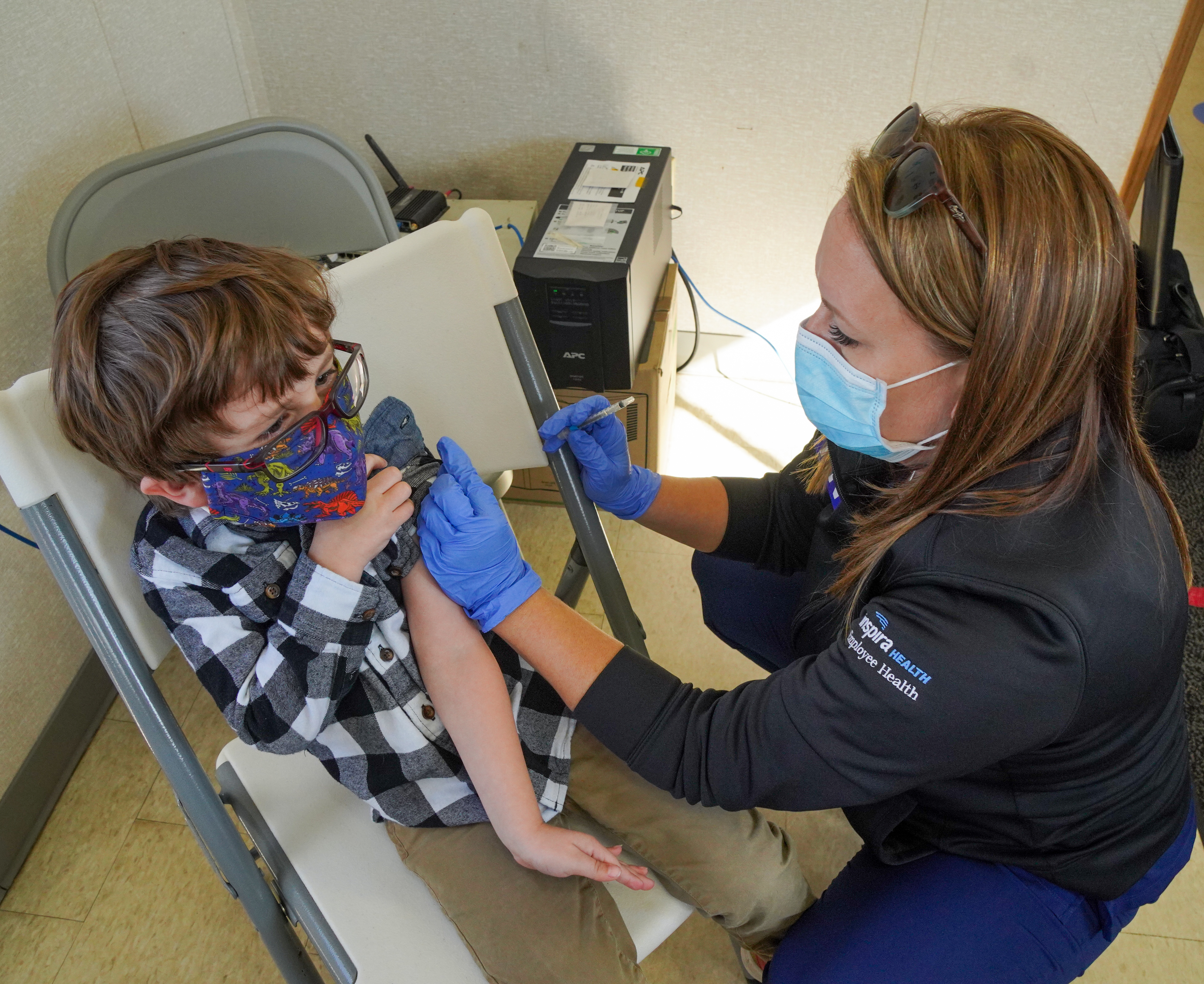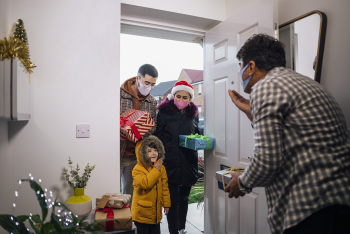Long COVID refers to a range of persistent symptoms that can linger for weeks, months or years after...
Read More

Recently, the Food and Drug Administration (FDA) authorized emergency use of the Pfizer-BioNTech COVID-19 vaccine for children ages 5 to 11. Followed by the endorsement from the Centers for Disease Control and Prevention (CDC), the ability to vaccinate young children marks a huge step forward in the fight against the COVID-19 pandemic.
The COVID-19 vaccines have undergone extensive clinical trials and are being continuously monitored for safety. “The benefits of getting your kids vaccinated outweigh the known and potential risks,” said Pratyusha Katta, M.D., Nemours pediatrician and pediatric hospitalist at Inspira Medical Center Vineland. “It’s important not only to get your children vaccinated to prevent the risk of severe illness from COVID-19, but also to help in the effort to reduce disruptions to in-person learning and other activities.”
The Pfizer-BioNTech vaccine for children ages 5 to 11 contains the same ingredients as those given to adolescents and adults, but at an age-appropriate dose—about one-third of that given to adults. It’s also given as a two-dose series, three weeks apart.
In clinical trials, the pediatric vaccine was found to be almost 91 percent effective in preventing COVID-19. There were no serious side effects detected in the 3,100 children participating in the study. “There is a much higher risk that your child will experience serious illness from contracting COVID-19 than as a result of getting vaccinated,” said Dr. Katta. “We’re continuously monitoring the safety of the vaccine, but we know that children who contract COVID-19 can have serious complications, such as multisystem inflammatory syndrome (MIS-C) and long COVID symptoms. So it’s important to protect your children by getting them vaccinated.”
Bringing your child in for the COVID-19 vaccine will be similar to any other routine vaccination experience. The vaccine is given via smaller needles, designed specifically for children. Your child will remain seated or lying down during the shot and for 15 minutes afterward for monitoring. And you’ll need to bring them back in three weeks for their second dose. “Children can be vaccinated against COVID-19 and the flu at the same time, so if you’re bringing them in for one vaccine, it’s a good idea to get both,” said Dr. Katta.
Common side effects of the vaccine include pain, redness and swelling at the injection site, as well as fatigue, headache, muscle pain, chills, fever and nausea. “These side effects are normal signs that the body is working to build protection against the virus,” said Dr. Katta. “While they may keep your child from participating in normal activities for a day or two, they should subside quickly.”
Inspira now offers the pediatric vaccine at Inspira Medical Centers Vineland and Mullica Hill. For hours of operation or make a vaccine appointment, click here. To learn more about the pediatric vaccine, visit the CDC website.

Long COVID refers to a range of persistent symptoms that can linger for weeks, months or years after...
Read More
A Very COVID Christmas: How to Celebrate Safely
Read More
After more than two years of masks, social distancing and travel restrictions, this winter is likely...
Read More
The material set forth in this site in no way seeks to diagnose or treat illness or to serve as a substitute for professional medical care. Please speak with your health care provider if you have a health concern or if you are considering adopting any exercise program or dietary guidelines. For permission to reprint any portion of this website or to be removed from a notification list, please contact us at (856) 537-6772